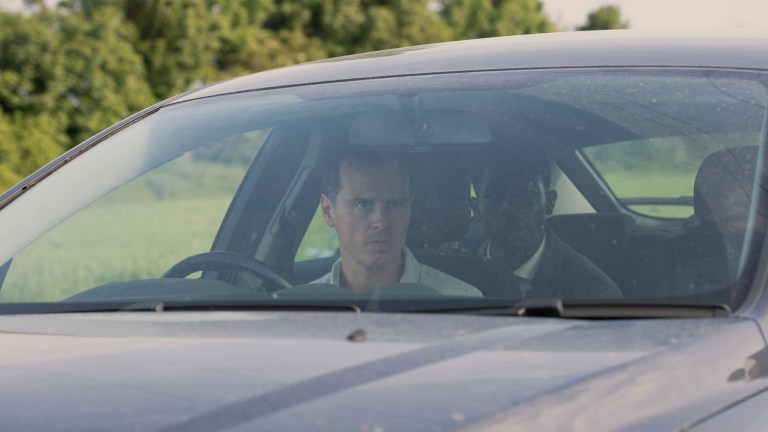Black Mirror season 5: Smithereens review – a moralising thriller
Andrew Scott's performance is the highlight of Black Mirror season five's Smithereens. Spoilers ahead in our review

This review contains spoilers.
5.2 Smithereens
Black Mirror is a point-of-comparison series. A TV show to which other TV shows, when they go ‘a bit Black Mirror’ are compared. It’s earned that position through eight years of culture-defining stories with a uniquely identifiable personality despite, as an anthology, changing everything from the ground up each time. Quite the feat.
Smithereens is the first Black Mirror episode that feels like an imitation rather than a facet of that personality. A serviceable thriller with a committed performance from Andrew Scott, it contains no image so memorable or idea so unsettling that it would haunt you after a first watch, or necessarily inspire a second.
A charismatic cast aside, in the context of this extraordinary series, Smithereens is a long seventy minutes that draws a callow conclusion. Isn’t it a bit late in the game to remind the Black Mirror audience that we all look at our phones too much? You may as well tell Ellen Ripley to be a bit careful up in space after she’s already blown the alien queen out of the airlock. We’re well past that point.
Things start with lead Andrew Scott as Chris, a man we quickly discover has been driven to extremes by grief and guilt. He’s using a meditation app, in a gently ironic point about needing an app on our phone to escape the effects of other apps on our phone. Things end with Can’t Take My Eyes Off You, a musical motif that recurs throughout the episode as a gag about phone addiction – a dark one in the light of Chris’ ultimate revelation.
Before that, there’s a grief counselling group, and the sad story of a woman seeking answers to her daughter’s unexplained suicide by attempting to crack her social media account password. Then the real story begins. Rideshare driver Chris takes Jaden (Damson Idris), employee of a Facebook-clone company, hostage and demands to speak to CEO Billy Bauer (Topher Grace).
What follows is a black comedy of errors: Jaden is a lower status employee than Chris hoped, the car is spotted and stopped almost immediately by the police, the hostage negotiator is worse than useless, the police are always two steps behind Smithereen in their surveillance.
Chris’ story unfurls, culminating in a confession/accusation to Silicon Valley giant Bauer that he caused the death of his fiancé in a car accident by checking his Smithereen app while driving. A bullet is fired, and the result is left ambiguous. Did Chris succeed in taking his own life, was it taken from him, was Jaden shot accidentally, or did they both survive?
Director James Hawes, back from season three’s Hated In The Nation, has been set a difficult task. With Chris and Jaden inside a static car for most of the episode, the action has to build around them. Creating tension and variety with this set-up is a challenge and inside the car, it’s largely left to Scott’s performance to vary the tone and build momentum. Cutting between a field in Kent, Smithereen’s California HQ and Billy Bauer’s stunning desert retreat makes things less airless, but at times the result is a thriller light on thrills.
It’s the story though, that lacks this show’s usual depth. Neither provocative or especially probing, Smithereens could almost be an episode from another, lesser series. Put the star casting of Scott to one side and Chris’ could be the case of the week in any number of detective procedurals.
Early on, an enjoyably unhinged Scott gives a speech railing against overreliance on social media. It’s an in-your-face expression of the episode’s themes, insistent almost to the point of self-parody. Ask somebody who’s heard of but doesn’t watch Black Mirror what the show’s about, and chances are it’d be this: a man ranting about phones while making sarcastic beepity beep noises.
A more subtle and effective point about social media is made in the collection of scenes that play out through the closing credits as the news of Chris’ fate arrives on screens around the world. Strangers pick up their phones, absorb the update, then scroll right past it and onto the next thing. Life is cheap in the 24-hour entertainment circus in which we all willingly perform. That feels Black Mirror. The rest of this story, less so.
